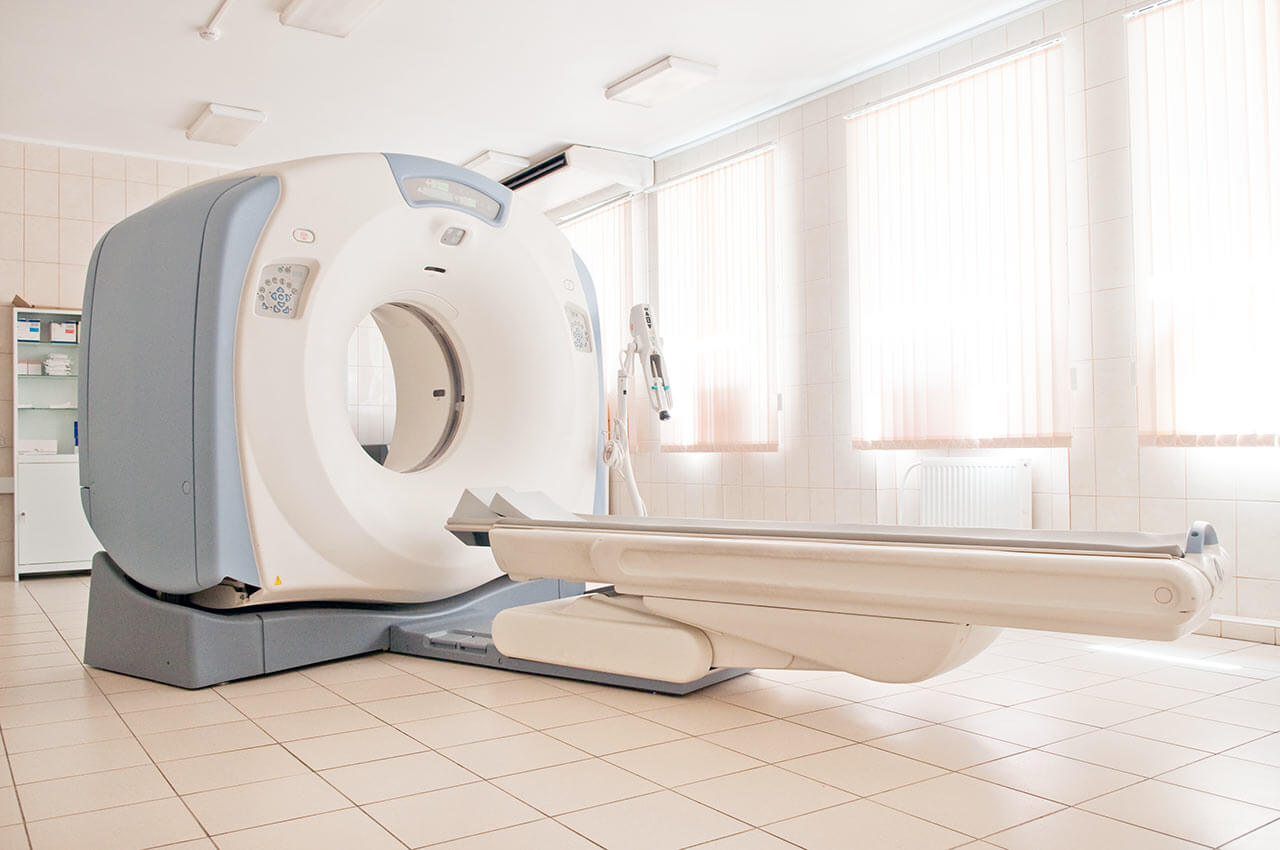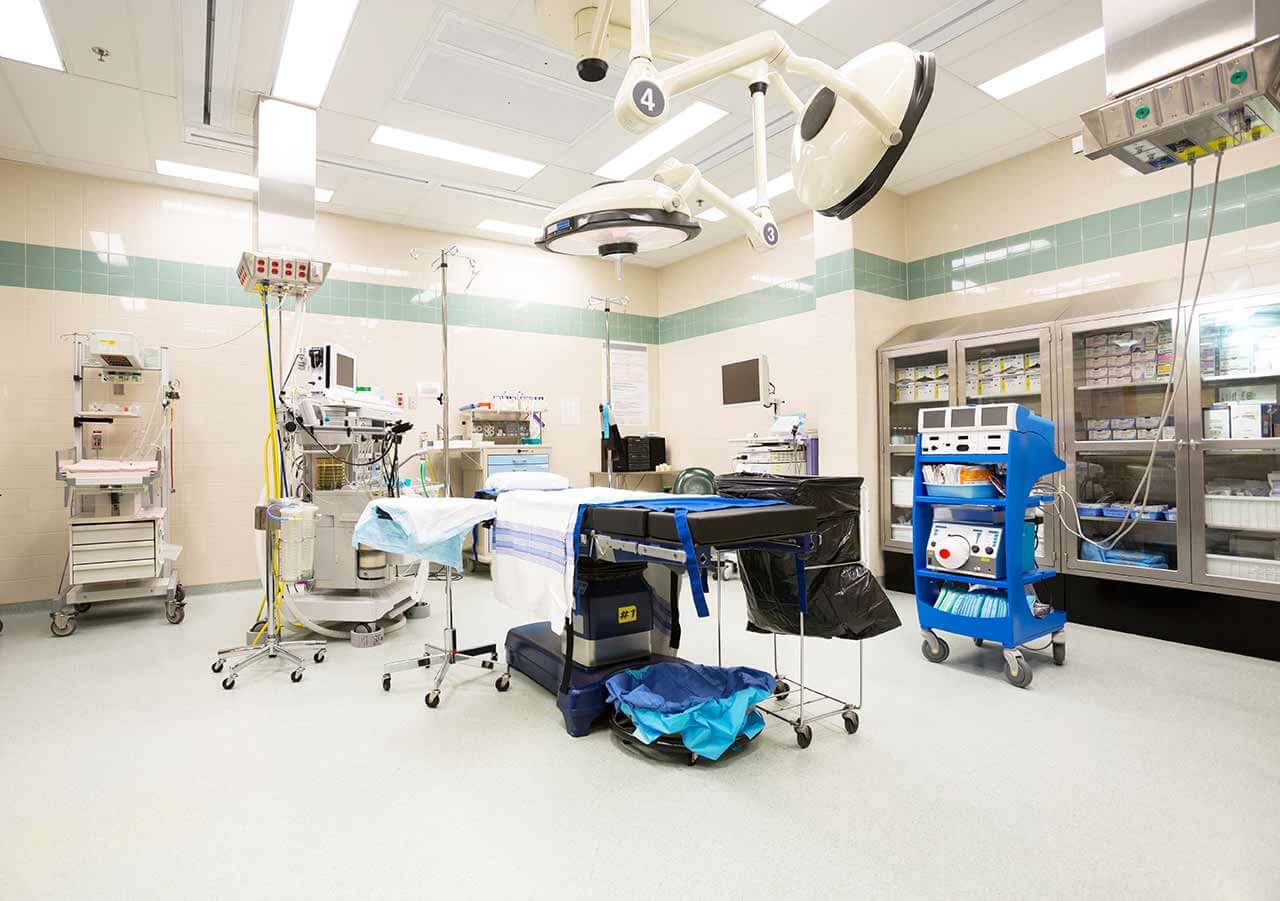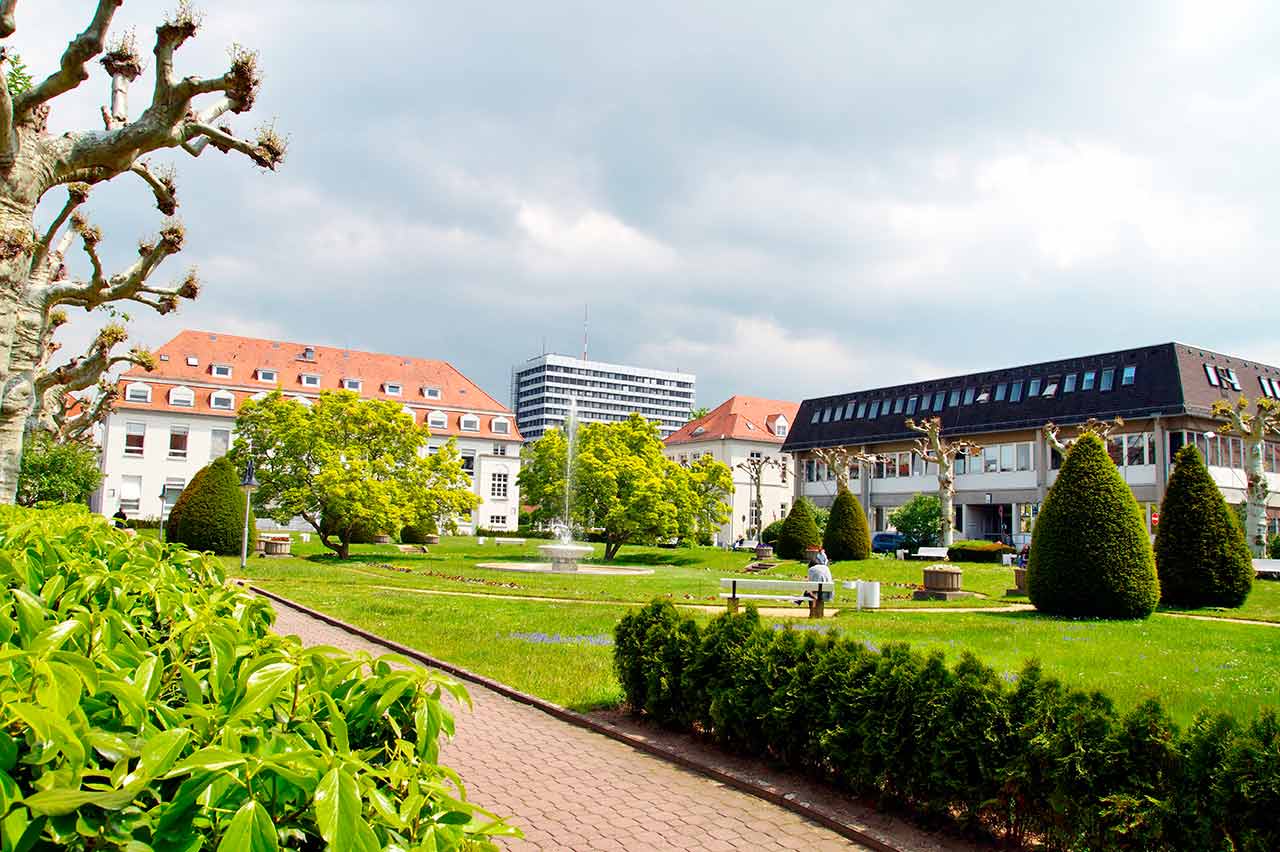
The program includes:
- Initial presentation in the clinic
- clinical history taking
- review of medical records
- physical examination
- ophthalmological examination:
- slit lamp examination
- pupil examination
- ocular motility examination
- ophthalmoscopy
- perimetry (visual field test)
- computer perimetry
- visometry (without correction and with correction)
- keratometry
- pachymetry
- refractometry (objective, subjective, cycloplegic)
- autorefractometry
- non-contact tonometry
- fluorescein angiography (if indicated clinically)
- optical coherence tomography OCT (if indicated clinically)
- gonioscopy
- photokeratoscopy
- nursing services
- services of chief physician and all leading experts
- explanation of individual treatment plan
Required documents
- Medical records
Service
You may also book:
 BookingHealth Price from:
BookingHealth Price from:
About the department
The Department of Adult and Pediatric Ophthalmology, Neuro-Ophthalmology at the University Hospital Mainz offers the full range of services in these fields and it is one of the best medical institutions of this type in Germany and Europe. It provides high-tech diagnostics and effective treatment of ophthalmologic diseases of any severity. The most important focus of the department is the treatment of glaucoma. In the field of Pediatric Ophthalmology, of particular interest is the treatment of strabismus and amblyopia. The department is headed by Prof. Dr. med. Norbert Pfeiffer.
The experienced doctors of the department devote much time to patient counselling, which allows to accurately assess the clinical case and select the optimal type of therapy. Thanks to the state-of-art medical equipment, many ophthalmic diseases are treated conservatively or with the use of microsurgical techniques, which guarantees a quick recovery of the patient.
The service range of the department includes:
Diagnostics and treatment of glaucoma
- Diagnostic services
- Clinical examination with the help of the slit lamp (with pupil dilation)
- Intraocular pressure measurement (tonometry)
- Visual field examination (perimetry) with the use of various methods
- Imaging of the optic nerve and retinal neurons (Heidelberg retinal tomography, optical coherence tomography, including high-resolution tomography)
- Corneal thickness measurement (pachymetry)
- Digital examination of the optic nerve
- Daily intraocular pressure measurement (on an outpatient basis
- Day and night intraocular pressure measurement (on an inpatient basis: 2-3 days)
- Other diagnostic methods
- Therapeutic services
- Trabeculectomy
- Canaloplasty
- Trabeculectomy
- Drainage placement
- Iridectomy
- Cycle destructive interventions
- Minimally invasive interventions for the treatment of glaucoma (for example, stent placement: iStent, Stent inject®, Hydrus™ Stent, CyPass™Stent)
- Other treatment methods
Diagnosis and treatment of corneal diseases
- Conservative therapy
- Treatment of severe forms of dry eye syndrome, such as Sjogren syndrome
- Autologous serum therapy
- Diagnostics and treatment of rare corneal diseases
- Contact lens fixation for simple and complex forms of corneal pathology (including keratoconus and conditions after corneal transplantation)
- Diagnostics and treatment of corneal infections (confocal laser microscope is available for diagnostic purposes)
- Surgical treatment
- Corneal transplantation with the use of all modern techniques (perforating keratoplasty, limbokeratoplasty, tectonic keratoplasty, DALK, DMEK, DSAEK, UT-DSAEK)
- Defect closure after burns, mechanical damages or inflammations with the help of amniotic membrane
- Treatment of recurrent corneal defects
- Pterygium removal
- Reconstructions for complex superficial lesions (for example, corneal ulcer, pemphigoid, conjunctival tumors, limb stem cell insufficiency)
- Crosslinking in keratoconus
- Other conservative and surgical treatment methods
Diagnostics and treatment of orbital diseases
- Conservative therapy
- Selection of prisms for strabismus compensation
- Selection of suitable local therapy
- Consultation and coordination of diagnostics and treatment with the related specialists
- Surgical treatment
- Eyelid deformity correction
- Correction of strabismus in eye movement disorders and diplopia
- Decompression in severe damage of the cornea, optic nerve
- Surgical treatment of intraocular neoplasms (depending on the localization, treatment is carried out in interdisciplinary collaboration)
- Surgical treatment of endocrine ophthalmopathy
- Other conservative and surgical treatment methods
Orthoptics, adult and pediatric neuro-ophthalmology
- Early detection, prevention and treatment of strabismus and amblyopia in children and adults
- Examination and treatment of children, adolescents with disabilities and vision problems
- Determination of ocular refraction in children
- Treatment of neuro-ophthalmic diseases
- Eye muscle surgery (strabismus surgery) in congenital, paralytic strabismus and nystagmus
- Rehabilitation for patients with vision problems (counseling, testing and adaptation for the usage of aids)
- Electrophysiology (VEP, electroretinogram, electrooculogram)
- Other services
Refractive surgery
- LASIK and FemtoLASIK
- LASEK
- Photorefractive keratectomy
- Artificial lens implantation (for example, multifocal intraocular lenses and phakic intraocular lenses)
- Other medical services
Curriculum vitae
- 2012 - 2014 Medical Director and Chief Executive Director, University Hospital Mainz.
- 2000 - 2003 Medical Director at the University Hospital Mainz.
- 1999 - 2000 Deputy Medical Director at the University Hospital Mainz.
- Since 1996 Professor and Head of the Department of Adult and Pediatric Ophthalmology, Neuro-Ophthalmology at the University Hospital Mainz.
- 1995 Acting Head of the Department of Adult and Pediatric Ophthalmology, Neuro-Ophthalmology at the University Hospital Mainz.
- 1992 - 1995 Leading Senior Physician in the Department of Adult and Pediatric Ophthalmology, Neuro-Ophthalmology at the University Hospital Mainz.
- 1992 Habilitation, Department of Adult and Pediatric Ophthalmology, Neuro-Ophthalmology at the University Hospital Mainz.
- 1990 - 1992 Senior Physician in the Department of Adult and Pediatric Ophthalmology, Neuro-Ophthalmology at the University Hospital Mainz.
- 1990 Medical Specialist in Ophthalmology, Senior Physician in the Department of Ophthalmology at the University Hospital Freiburg.
- 1985 - 1990 Assistant Physician in the Department of Ophthalmology at the University Hospital Freiburg.
- 1985 Doctor of Medicine.
- 1985 Admission to medical practice.
- 1977 - 1985 Study of Medicine at the Universities of Giessen, Freiburg, Newcastle and Cambridge (United Kingdom).
Positions in the Scientific Societies and Committees
- Since 2011 Member of the Off-Label Expert Group at the Federal Institute for Drug Development.
- 2007 Member of the Executive Board, Professional Association of German Ophthalmologists (BVA).
- 2007 President of the Association of Professors Ophthalmologists (VOL).
- 2006 President of the German Society of Ophthalmology (DOG).
- 2005 - 2009 Member of the European Glaucoma Society.
- 2005 Deputy President of the German Society of Ophthalmology (DOG).
- 1998 - 2001 Chairman of the Mainz Medical Association.
Awards and Memberships
- 2014 Trantas Annagnostakis Award of the Greek Glaucoma Society and the Greek Society of Ophthalmology.
- Since 2012 Member of the National Academy of Sciences Leopoldina.
- 2011 PR Award.
- 2010 Communication Award, German Healthcare Economics Congress.
- Since 2009 Member of the European Academy of Ophthalmology.
- Since 1998 Member of the Glaucoma Research Society.
- 1994 - 2010 Various awards for the best publication and video.
- 1997 Best Lecturer Award at the University of Mainz.
- 1995 Prix Galien Prize for pharmacological developments in the treatment of glaucoma.
- 1993 Award for the video work of the German Society of Ophthalmology.
- 1993 Award of the German Society of Ophthalmology (in glaucoma treatment).
- 1990 Chibret Award.
- 1988 Scholarship of the German Research Foundation.
- 1984 - 1985 British Council Scholarship.
- 1984 Dr. Carl Duisberg Foundation Scholarship for training abroad.
- 1981 Clinical internship, AIESEC.
- 1980 - 1981 Scholarship for training abroad (Studienstiftung des Deutschen Volkes).
- 1979 - 1985 Scholarship (Studienstiftung des Deutschen Volkes).
Main Research Focuses
- Glaucoma and its therapy.
- Eye chambers aqueous humor synthesis.
- Carbonic anhydrase inhibitors.
- Molecular analysis.
- Imaging in ophthalmology.
Photo of the doctor: (c) Universitätsmedizin der Johannes Gutenberg-Universität Mainz
About hospital
The University Hospital Mainz is one of the best maximum care medical facilities in Germany and an internationally recognized scientific center. There are more than 60 departments and institutes, which represent all fields of modern medicine. The hospital serves more than 68,000 inpatients and more than 273,000 outpatients annually, which testifies to the excellent reputation of this medical institution.
The key to the successful clinical practice is also a highly qualified medical staff, which consists of 7.800 employees from various fields. The doctors of the hospital are convinced that each clinical case requires an individual approach, therefore, they devote much time to consultations and communication with patients. The main goal of all hospital employees is to provide an optimal medical care based on the use of the state-of-art diagnostic and therapeutic measures, as well as the introduction of the latest scientific achievements into the medical practice.
The best interns and assistant physicians are trained here. The world-famous leading physicians of the hospital share their long experience and professional skills. Naturally, an integral part of the university hospital work is research, thanks to which many innovative possibilities in the field of diagnostics and therapy have been developed.
Photo: (c) depositphotos
Accommodation in hospital
Patients rooms
The patients of the University Hospital Mainz live in bright, spacious and comfortable rooms. The patient rooms are equipped with modern electronically adjustable beds, which at the touch of a button automatically assume a specified position. Also, there is a TV and a telephone in the patient rooms. To use them, it is necessary to get a prepaid card (in vending machines at the entrance to the hospital). The use of a TV is free, but the patient will need headphones. Telephone calls are made for a fixed fee, which will be withdrawn from the prepaid card at discharge from the hospital. Also, each patient room is equipped with an ensuite bathroom with shower, washbasin and toilet.
Meals and Menus
The patients of the hospital are offered a tasty and balanced three meals a day: breakfast, lunch and dinner. The menu also includes vegetarian and dietary dishes. In addition, for both patients and their visitors there are available cafeterias and bakeries, where one can buy baked goods, snacks, hot and cold drinks.
Further details
Standard rooms include:





